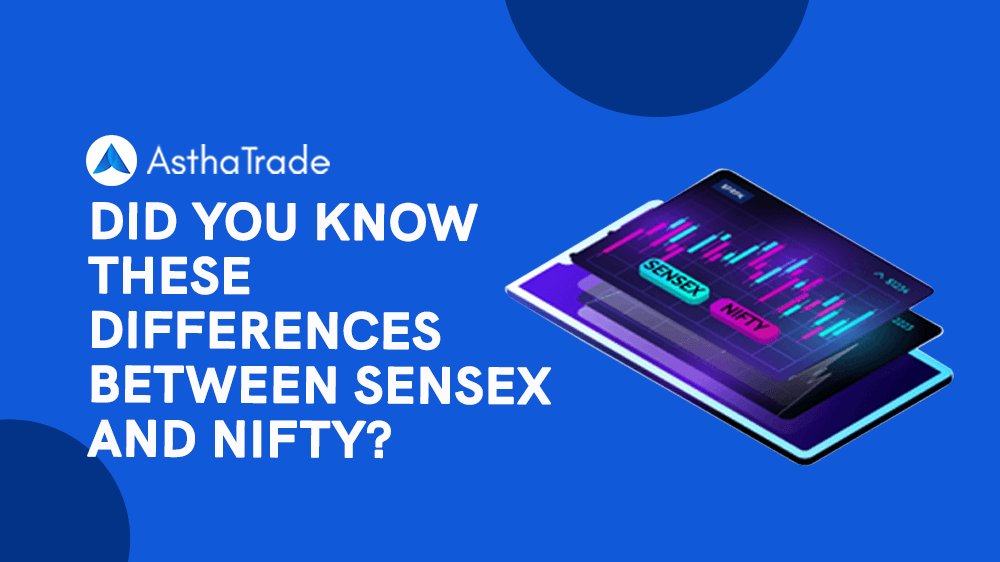Exploring the Differences Between Nifty and Sensex Stock Indexes


00:00 / 00:00
The BSE and the NSE are India’s two prominent and most active stock exchanges. Around 7000 companies are listed on these stock exchanges.
On each trading day, millions of deals take place on each of these exchanges. A Demat account is required to trade in stock exchanges.
It is practically impossible to keep track of the stock market’s movement because many firms are listed on these exchanges.
As a result, stock exchanges came up with the concept of indexes to make the process easier. With only a glance at these indexes, you can determine the market’s direction.
In India, there are two stock indexes. To grasp the details of these two indices and their distinctions, it is necessary first to grasp the notion of an index.
What is the definition of a stock index?
A stock index is a meticulously selected collection of firms listed on a stock market. The firms that make up the index are typically from various industries and areas.
An index is often considered one of the finest indicators of an economy’s success since it includes firms from key sectors and industries.
You may invest in stock indexes through various mutual fund schemes and invest in companies.
Let’s look at the country’s two key indexes, the Nifty and Sensex.
Sensex
Deepak Mohoni, a financial writer, invented the name Sensex, formed from a combination of the terms ‘sensitive’ and ‘index.’
The Bombay Stock Exchange’s flagship index is the Sensex (BSE). The Sensex is the oldest stock index in India. It includes the top 30 BSE-listed businesses spanning various sectors and industries.
Nifty
Nifty, often known as the National Stock Exchange Fifty, is the NSE benchmark index. The index was started in 1996.
The Nifty is made up of the top 50 firms from various sectors and industries listed on the NSE.
The index includes large-cap firms listed on stock exchanges and has a high level of liquidity.
These corporations account for around 70% to 75% of the overall market value in India.
Difference Between Nifty Vs Sensex
Sensex | Nifty |
Sensex is the BSE’s benchmark index. | The Nifty is the NSE’s benchmark index. |
Sensex is the first and oldest stock exchange in India. It was established in 1986. | The Nifty was introduced in 1996. |
Sensex is formed from two words, ‘sensitive’ and ‘index.’ | The term Nifty is formed from ‘national’ and ‘fifty’. |
Sensex contains Bombay Stock Exchange’s top thirty publicly traded firms. | Nifty includes the NSE’s top 50 publicly traded firms. |
These 30 companies present in BSE have been taken from 13 various industries. | The Nifty, on the other hand, is a more extensive index that includes firms from a variety of industries. |
The base value is 100. | The base value is 1000. |
Both the Nifty and Sensex contain several well-established and fundamentally sound firms.
On a similar point, investing in any of these indexes allows you to participate in the wealth generation process as an investor.
The content on this blog is for educational purposes only and should not be considered investment advice. While we strive for accuracy, some information may contain errors or delays in updates.
Mentions of stocks or investment products are solely for informational purposes and do not constitute recommendations. Investors should conduct their own research before making any decisions.
Investing in financial markets are subject to market risks, and past performance does not guarantee future results. It is advisable to consult a qualified financial professional, review official documents, and verify information independently before making investment decisions.
Open Rupeezy account now. It is free and 100% secure.
Start Stock InvestmentAll Category









